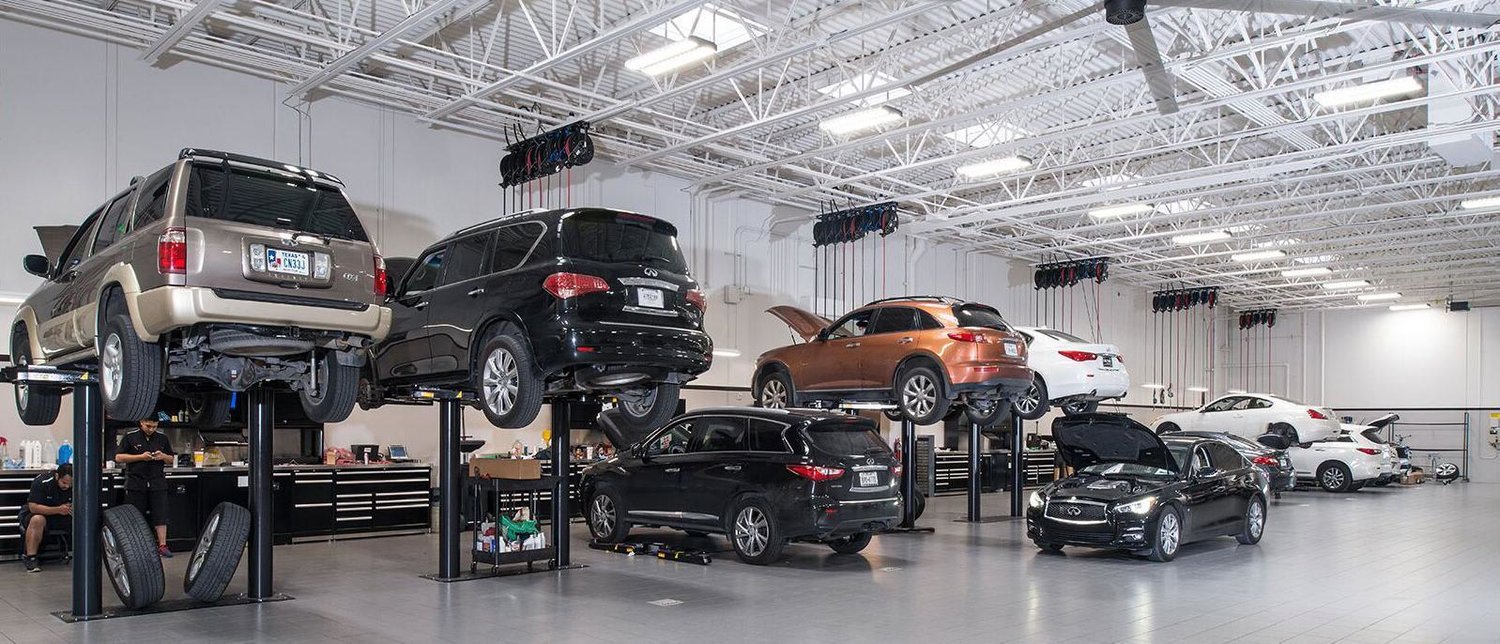All Categories
Featured

When it comes to lorry maintenance, the brakes are arguably the most vital system for guaranteeing your safety and security. Normal brake examinations are essential to keeping your stopping system in leading condition.
- Why Brake Inspections Are Important. Brakes are developed to put on down with time, however without normal inspections, you may not see when they come to be less reliable. A defective brake system can lead to significant crashes, increased repair work expenses, and even the need to change other automobile parts.
Brake assessments not only assist you catch potential issues prior to they rise, however they additionally permit for much better stopping efficiency, increased lorry life-span, and improved safety.
- Identifying Caution Indications for Brake Problems. While regular inspections are very important, you don't have to wait up until your automobile's following check out to the mechanic. Watch for these indication that might show it's time for an inspection:
Uncommon Noises: A shrill screech or grinding audio when using the brakes frequently indicates that the brake pads are put on down or damaged. Soft or Mushy Brake Pedal: If the brake pedal really feels soft or mushy when pushed, there may be air or moisture in the brake lines, or the brake fluid may be low. Pulling away: If the automobile pulls away while stopping, it might indicate irregular brake pad wear or a hydraulic issue in the brake system. Resonance in the Wheel or Pedal: If you experience resonance or pulsation when braking, it may suggest deformed rotors or uneven brake pad wear. Enhanced Quiting Distance: If it takes longer than normal to bring your car to a quit, it might be time to inspect the brake pads, liquid levels, or rotors. If you observe any of these indications, it's ideal to have your brakes checked quickly by a specialist.
- Key Components Checked Throughout a Brake Assessment. Throughout a brake examination, a licensed technician will examine a number of key parts of the brake system to ensure they're operating effectively. Some of the most fundamental parts to evaluate consist of:
Brake Pads: These are the friction material that presses against the brake blades to slow down the car. With time, the brake pads put on down and require changing. Brake Rotors: Blades are the steel discs that the brake pads clamp down on. They should be smooth and cost-free of deep grooves or cracks. Brake Fluid: The brake liquid moves the pressure from the pedal to the brakes. Reduced liquid degrees or old, polluted fluid can lead to poor stopping performance. Brake Lines: Brake lines carry fluid from the master cyndrical tube to the brake elements. They ought to be looked for leakages, fractures, or damages. Brake Calipers: These clamp the brake pads onto the rotors. They should remain in good working order and without leakages. Consistently checking these elements ensures your braking system works efficiently and helps you avoid dangerous driving circumstances.
- Exactly how Usually Should You Get Your Brakes Examined? The regularity of brake assessments relies on your driving habits and the kind of automobile you own. As a basic standard, it's recommended to evaluate your brakes at least as soon as a year or every 12,000 miles. Nevertheless, if you drive in hefty traffic, regularly carry heavy tons, or drive on uneven surface, even more frequent evaluations may be required.
It's additionally a good idea to have your brakes evaluated if you notice any of the warning signs pointed out earlier, as this can stop more severe issues.
- The Price of Disregarding Brake Inspections. Neglecting regular brake assessments can lead to severe consequences. Used brake pads, harmed blades, or low brake fluid can create your braking system to fall short when you need it most. Along with the safety and security dangers, neglecting brake upkeep can lead to pricey repair services down the road.
For instance, if the brake pads are not replaced in time, the damage could encompass the blades, leading to the requirement for rotor substitute-- a pricey fixing. By scheduling regular brake assessments, you can avoid these costly repairs and keep your stopping system in good condition for longer.

- What Happens During a Brake Evaluation? A professional auto mechanic will execute an in-depth assessment of your vehicle's stopping system, consisting of checking for the following:
Brake Pad Thickness: Brake pads need to be changed when they have actually used down to a particular density. Rotor Problem: The technician will check the blades for indications of wear, bending, or racking up. Brake Fluid Degree: Reduced brake fluid can affect stopping performance. The auto mechanic will certainly examine the liquid level and renew it if needed. Brake Line Stability: The brake lines will be checked for any leakages or splits that can endanger the brake system. When the examination is full, the mechanic will notify you of any necessary repairs or replacements.
Final Thought: Remain Safe with Routine Brake Inspections. Your brakes are necessary to maintaining you and your passengers safe when driving, so normal brake evaluations ought to never ever be ignored. By taking note of indication, scheduling regular brake checks, and addressing issues quickly, you can make sure that your brakes are constantly in leading form.
Don't wait up until your brakes stop working-- stay aggressive about brake maintenance. A tiny investment in brake evaluations today can save you from pricey repair services and unsafe circumstances in the future.
Latest Posts
Recognizing When Your Car Needs Skilled Auto Repair at Montclare Auto Repair
Experience WyHy FCU – Your Path to Superior Financial Services in Wyoming
Discover WyHy Federal Credit Union – Top Benefits for Your Financial Success
More
Latest Posts
Recognizing When Your Car Needs Skilled Auto Repair at Montclare Auto Repair
Experience WyHy FCU – Your Path to Superior Financial Services in Wyoming
Discover WyHy Federal Credit Union – Top Benefits for Your Financial Success
